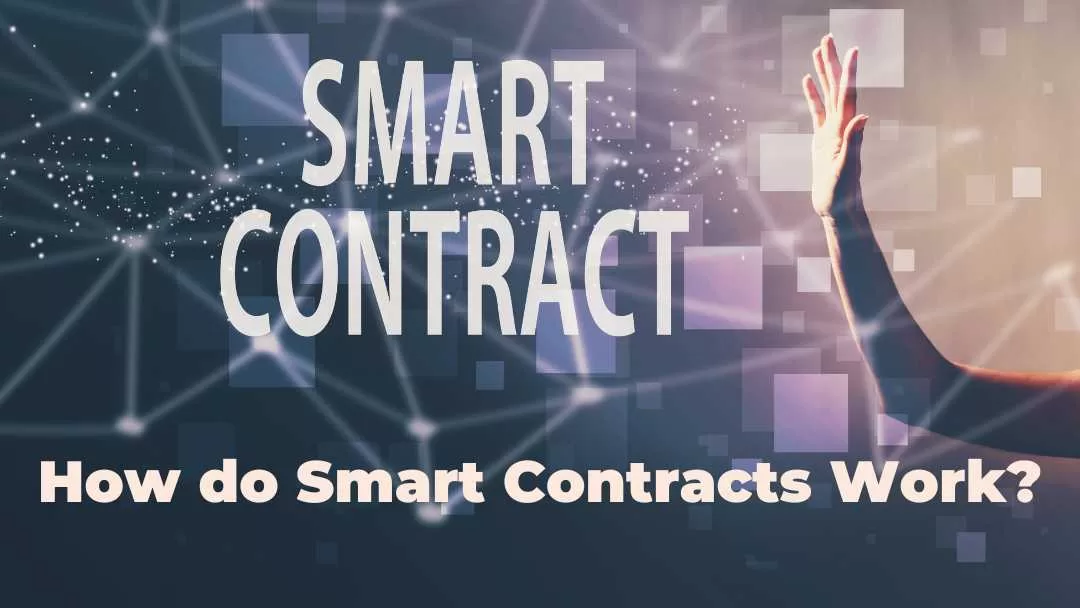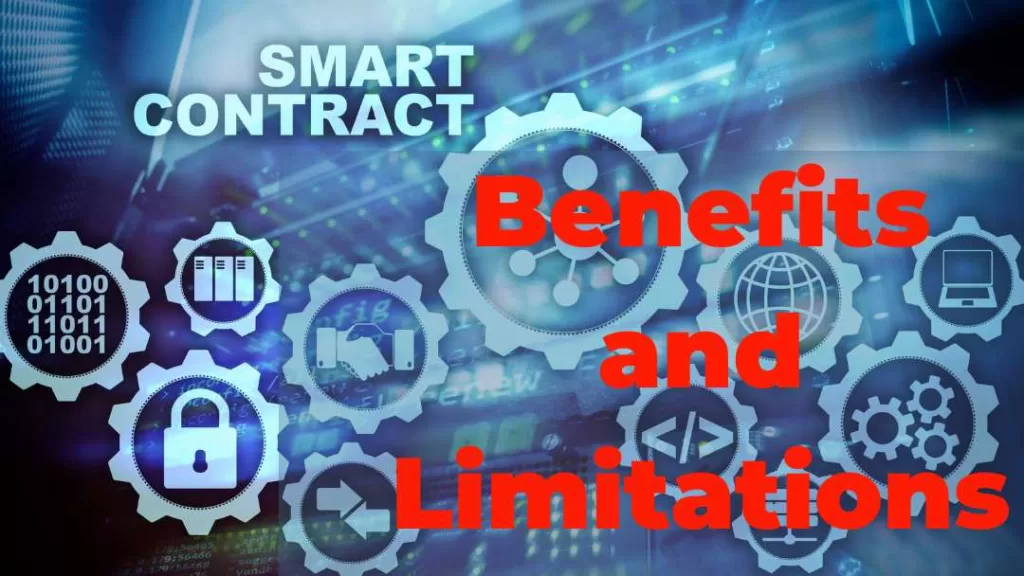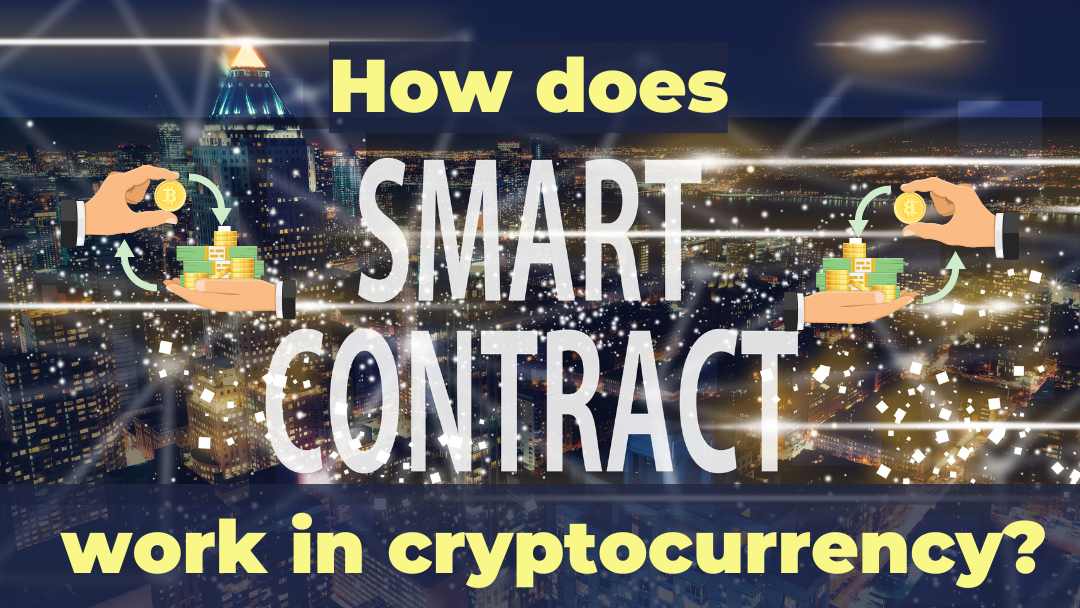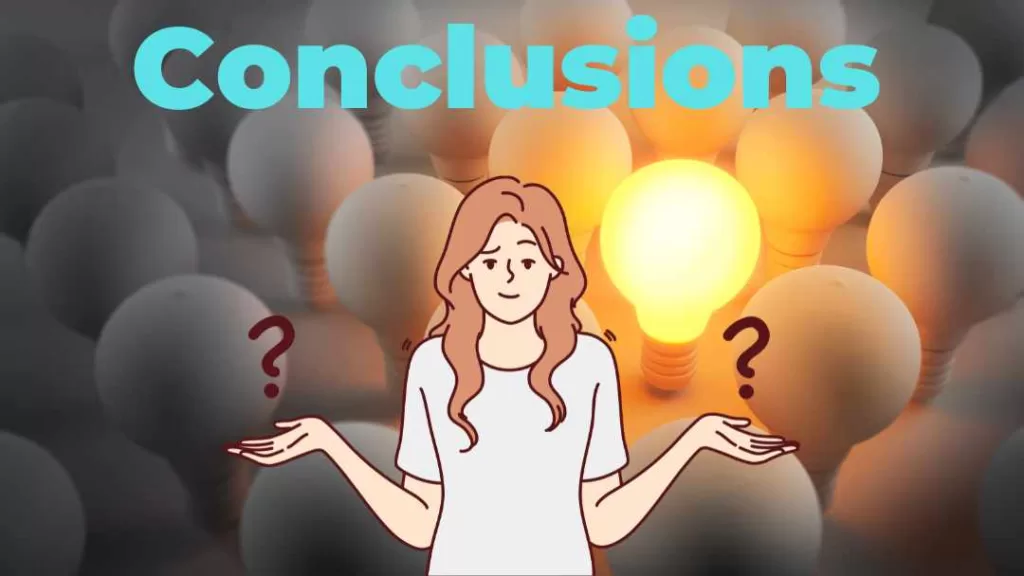In this article, we are going to discuss What is a smart contract? How do smart contracts work? How to create a smart contract? smart contract examples, and what is the use of smart contracts?
Friends, as you know, in today’s digital era. The term “smart contract” has become very important and popular in the field of technology. A technical person may have an idea about it but it crosses over into the mind of a nontechnical person like us. Initially, I also had confusion about the smart contract, and after having a detailed understanding and doing research on this topic, I am trying to make it easy and simple for you to understand.
The smart contract is a self-executing digital agreement, where the terms and conditions of the agreement are written directly into code. These types of agreements are implemented on blockchain networks, which are decentralized and secure ways of storing information. It has been designed to make transactions faster, more efficient, and more secure.

What is a Smart Contract?
Smart contracts were initially proposed by Nick Szabo in 1994, and ever since then, their popularity has experienced a consistent upward trajectory, aligning perfectly with the emergence and rise of blockchain technology. These smart contracts are crafted with utmost meticulousness and precision, aiming to expedite transactions, optimize efficiency, and bolster overall security measures.
One of the truly remarkable and pivotal attributes inherently embedded within these smart contracts lies in their remarkable capacity to be programmed in a manner that facilitates automatic execution as soon as specific conditions are satisfactorily fulfilled and met.
To further expound and exemplify this notion, let us contemplate the scenario of a sophisticated agreement tailored explicitly to facilitate the acquisition of a residence.
Within this specific arrangement, upon the faithful remittance of the predetermined purchase price, the ownership of the property promptly and seamlessly transfers from the seller to the buyer, thereby effectively eliminating the requirement for intermediaries such as attorneys or notaries to be engaged in the procedure.
In simple words, the smart contract is a self-executing digital agreement, where the terms and conditions of the agreement are written directly into code. These types of agreements are implemented on blockchain networks, which are decentralized and secure ways of storing information. It has been designed to make transactions faster, more efficient, and more secure.
How do Smart Contracts Work?
After understanding what a smart contract ?, Now we are going to learn about the process of creating and executing a smart contract in a simple and easy-to-understand way. I am going to explain each step of the process (from writing the contract code to deploying it, executing it, and storing it on the blockchain) with examples to illustrate how smart contracts work.

Please understand this in the following steps:
(i) Writing the contract code: As the first step, the person or entity who wants to create the smart contracts writes the rules and terms of the agreement in a computer code using a programming language that is compatible with the blockchain platform For example, Ethereum, a popular smart contract platform, uses a programming language called Solidity.
(ii) Deploying the contract: After writing the code, the second step is to deploy the code to the blockchain network. This is done by sending a special type of transaction, called a contract deployment transaction, to the network.
(iii) Execution of the contract: After deployment of the contract, the contract automatically executes when certain conditions which are specified in the contract code are met. This means that it carries out the instructions specified in the code. For example, if a smart contract is set up to buy a house, and the agreed-upon (pre-decided) sale price is paid, then the ownership of the house is automatically transferred from the seller to the buyer.
(iv) Storing the contract on the blockchain: Once the contract is put into use, as a fourth step it is stored on the blockchain and is accessible to anybody with the necessary permissions.
Let’s understand it with an example; Suppose, Mr. A wants to sell his house to Mr.B. Both persons can agree to use a smart contract instead of going through traditional means such as hiring a real estate agent or a lawyer. This smart contract would automate the process of buying and selling the house, by setting up specific conditions, such as the agreed-upon price. Once Mr. B makes the payment, the contract will automatically transfer the ownership of the house to Mr. B without any need for intermediaries.
Similarly, Ethereum is a popular smart contract platform .which is an open-source, decentralized platform that enables the creation and execution of smart contracts and decentralized applications. With Ethereum, developers can create smart contracts using the Solidity programming language and deploy them to the Ethereum blockchain.
Applications of Smart Contracts
Smart contracts have had a significant impact on various industries. It has a wide range of potential use cases and applications. They can be used in various sectors, including finance and banking, supply chain management, real estate, public administration, voting systems, healthcare, etc.

Let’s have a look at the potential uses of smart contracts :
- Supply Chain Management: Smart contracts can provide a significant impact on the supply chain management sector by streamlining and automating the process of tracking goods as they move through the supply chain, also by improving transparency and reducing the potential for fraud. They can also be used to automate and streamline the process of tracking inventory, managing purchase orders, and also to create digital bills for landing.
- Healthcare: Like other sectors, smart contracts can also be used to maintain secure and tamper-proof medical records and facilitate the sharing of medical data among authorized parties. This can greatly improve patient care and reduce costs associated with managing medical records.
- Finance and Banking: The application of Smart contracts can also be seen in the Finance and banking sector. It can automate all financial transactions such as securities trading and derivatives trading, which can save time and money by eliminating the need for intermediaries. They can also be used as lending and borrowing platforms, allowing borrowers and lenders to interact in a trustless environment.
- Intellectual Property management: Smart contracts can be used to track the ownership and rights of different forms of intellectual property such as music, videos, images, and written works, and also to automate royalties and license payments.
- Real Estate: Smart contracts can also automate the process of buying and selling property, handling things like property title transfer and recording of ownership which can save time and reduce cost.
- Government and Voting Systems: Smart contracts can also automate and secure voting processes, making them more transparent and tamper-proof, and can also be used for creating and executing legally binding agreements between government organizations and citizens.
- Gaming industry: Also in the gaming sector, Smart Contracts can be used for creating provably fair gaming experiences, for creating in-game marketplaces, and for other online gaming-related applications.
I have given some examples of the applications of smart contracts, But there are many other possibilities and use cases as well, it is a versatile technology. The full potential of smart contracts is still being explored.
Benefits and Limitations of Smart Contracts
As of now, we have seen the potential uses of Smart contracts But if we would like to discuss the main benefits of smart contracts we can classify them as below :
(i) Automation: Automation can save time and money by eliminating the need for intermediaries.
(ii) Transparency: Transparency is ensured as smart contracts are built on blockchain technology which makes it tamper-proof and easily verifiable.
(iii) Security: Security is also ensured as the smart contract code is stored on a decentralized network and is accessible only to authorized parties.

But, like any new technology, smart contracts also have their limitations which are as below :
(i) Complexity of the Technology: One of the main challenges is the complexity of the technology. Writing and implementing smart contracts requires a certain level of technical expertise and can be difficult for non-technical users.
(ii) Lack of Standardization.: Another limitation is the lack of standardization. Because the technology is still relatively new, there are currently no widely accepted standards for smart contract development and deployment.
How does a smart contract work with cryptocurrency?
Smart contracts also play a great impact in the cryptocurrency world. It can be used in many ways in the cryptocurrency market. I am going to discuss below a few examples of how smart contracts can be used in cryptocurrency:
- Token creation and management: Smart contracts can be used to create and manage digital assets, such as tokens, which can represent a wide range of assets, from commodities to securities. Along with the creation of the tokens, the smart contract can also manage its distribution, ownership, and transfer automatically
- Decentralized exchanges (DEXs): Smart contracts can also be used to enable the trading of cryptocurrencies on a decentralized exchange (DEX), which operates on a blockchain. The smart contract holds and manages the funds and executes trades automatically when the conditions of the trade are met, such as when a certain price is reached.

- Payment gateway: Smart contracts can also be used to create a payment gateway that accepts multiple cryptocurrencies and automatically converts them into a chosen token. This could be useful for merchants or businesses who want to accept multiple types of cryptocurrency without having to hold each one individually.
- Stablecoins: leverages the potential for smart contracts to engender decentralized financial services, including lending, borrowing, and trading. These services are readily accessible to individuals with an internet connection. Smart Contracts can automatically manage the loan terms, interest rates, and collateral requirements, and execute the transaction when the conditions are met.
Here we have seen that smart contracts are used to automate the execution of specified certain actions and enforce the specified rules, which can reduce the need for trusted intermediaries and improve the efficiency o financial transactions in the cryptocurrency world.
Frequently Asked Questions (FAQs)
How does smart contract make money ?
It is imperative to understand that smart contracts, in and of themselves, do not generate revenue. Instead, they serve as a set of automated instructions executed when predetermined conditions are met. However, they possess immense potential as a tool for facilitating financial transactions and enabling novel business models.
Let us delve into several avenues through which smart contracts can be harnessed to generate revenue, showcasing their versatility and transformative power:
- Tokenization: Smart contracts offer the means to create and manage digital assets, including tokens, within a blockchain-based platform. These assets can be bought and sold, with the platform imposing fees for their creation, purchase, and sale. Through this mechanism, a steady stream of revenue can be generated.
- Decentralized Finance (DeFi): Leveraging smart contracts, one can establish decentralized financial services such as lending, borrowing, and trading. These services become accessible to anyone with an internet connection. Platforms facilitating such services can levy interest charges, fees for service usage, or transaction fees, thereby fostering a sustainable revenue stream.
- Crowdfunding: Smart contracts provide an avenue for launching and overseeing crowdfunding campaigns. Investors can utilize cryptocurrencies to acquire tokens representing shares in a project. The platform orchestrating the campaign can earn commissions based on the funds raised, thus generating revenue.
- Supply Chain Optimization: By integrating smart contracts into supply chains, automation can be achieved, enhancing the flow of goods and services. These contracts record transactions in an incorruptible manner, bolstering efficiency, and subsequently reducing costs. The resulting improved trust and transparency among involved parties can contribute to increased revenue.
It is crucial to note that the examples provided above represent only a fraction of the vast potential of smart contracts in revenue generation. As technology continues to mature and new use cases emerge, the possibilities are bound to expand further.
What are the types of smart contracts in blockchain
There's a wide array of smart contracts that can be implemented on a blockchain platform, each with its own set of distinctive features and use cases. Let's explore some of the popular types of smart contracts:
- Workflow Automation: These smart contracts streamline repetitive tasks, such as processing invoices or tracking inventory in a supply chain. They take care of the mundane, so you can focus on what matters most.
- Tokenization: With these smart contracts, you can create and manage digital assets in the form of tokens. These tokens represent various assets, ranging from commodities to securities. It's like having a digital vault for your valuable possessions.
- Decentralized Finance (DeFi): These smart contracts empower the creation of decentralized financial services accessible to anyone with an internet connection. You can engage in lending, borrowing, and trading activities without the need for intermediaries. It's finance for the people, by the people.
- Digital Identity: Imagine having smart contracts that help you create and control your digital identity. These contracts provide a secure way to manage and share personal information. You hold the keys to your virtual self.
- Escrow: When it comes to transactions, these smart contracts act as trusted intermediaries. They hold the buyer's funds until the goods or services are delivered, ensuring a fair exchange. It's like having a reliable referee in the digital marketplace.
- Oracles: Smart contracts with oracle capabilities serve as a vital link between the blockchain network and external resources. They bridge the gap, allowing smart contracts to access information from other APIs, data sources, and systems. It's like having a knowledgeable guide by your side.
- Multi-signature contracts: These smart contracts cater to transactions that require multiple approvals. Parties involved can sign off on the transaction before it gets executed. It's a collaborative approach that ensures consensus and trust.
- Stablecoin: With these smart contracts, stable cryptocurrencies are born. These digital assets are pegged to the value of an underlying asset, such as the US dollar. They offer stability amidst the volatility that characterizes other cryptocurrencies. It's like having a steady ship in the ever-changing sea of digital currencies.
Are smart contracts legal?
The legal status of smart contracts varies from jurisdiction to jurisdiction. Some countries have recognized the legal validity of smart contracts, while others are still developing regulations for them. In general, smart contracts are considered to be legally binding as long as they meet the requirements of contract law.
How are smart contracts different from traditional contracts?
Smart contracts are different from traditional contracts in that they are self-executing and automatic, while traditional contracts typically require intermediaries such as lawyers and notaries to enforce them. Smart contracts are also stored on a blockchain, which makes them more secure and transparent.

Conclusion:
In this article, we have discussed What is a smart contract? How do smart contracts work? What is the use of smart contracts? and you have definitely found Smart Contracts to be a powerful tool that has the potential to revolutionize the way we conduct transactions and exchange value. From finance to supply chain management, the applications of smart contracts are varied and far-reaching. They can automate and streamline processes, increase transparency and security, and ultimately make the exchange of values more efficient and cost-effective. However, as with any new technology, there are still challenges that need to be addressed. Nevertheless, with ongoing research and development, we can expect smart contracts to play an increasingly important role. Wishing you an amazing journey with Cryptocurrency!
Read More :
- How to Invest in Cryptocurrency in India-The 5 Steps Essential Guide for Beginners
- Top 10 Best Cryptocurrencies in 2023- What Experts are Predicting
- Fall in Love with Cryptocurrency – Know Crypto in an easy way…
- Cryptocurrency for beginners – What is Cryptocurrency ? How does it work ?
- The Insider’s Guide to Type of Cryptocurrency
- A Foolproof Guide To Bitcoin Mining
- BlackRock’s entry into the Cryptocurrency space: A game changer for Bitcoin and other cryptocurrencies?
- What is Crypto Fear and Greed Index? A Beginner’s Guide to Understand the Crypto Market






























